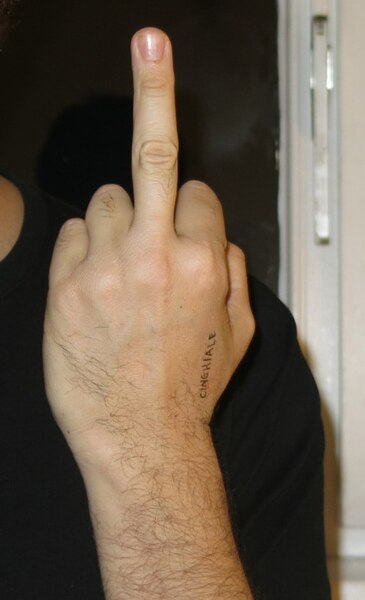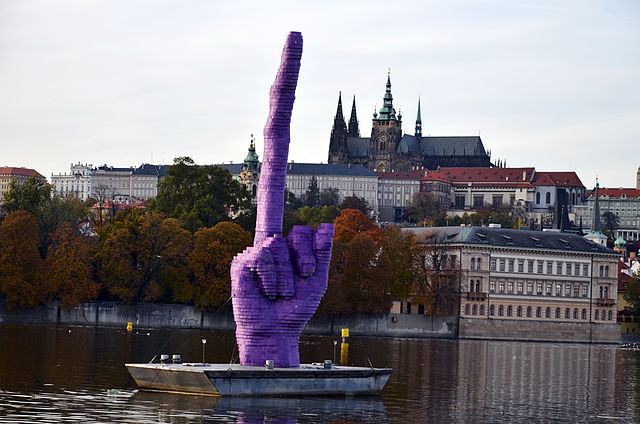The NME Awards is an annual music awards show in the United Kingdom, founded by the music magazine NME. The first awards show was held in 1953 as the NME Poll Winners Concerts, shortly after the founding of the magazine. Though the accolades given are entirely genuine, the ceremony itself is usually carried out in a humorous and jovial manner, and have included categories in the past like "Villain of the Year" and "Worst Record". The trophies given to the winners resemble an extended middle finger.
Logo for the 2016 NME Awards
Elvis Presley, winner of 26 NME awards
In Western culture, "the finger", or the middle finger also represented as "🖕" is an obscene hand gesture. The gesture communicates moderate to extreme contempt, and is roughly equivalent in meaning to "fuck you", "fuck me", "shove it up your ass/arse", "up yours", or "go fuck yourself". It is performed by showing the back of a hand that has only the middle finger extended upwards, though in some locales, the thumb is extended. Extending the finger is considered a symbol of contempt in several cultures, especially in the Western world. Many cultures use similar gestures to display their disrespect, although others use it to express pointing without intentional disrespect. The gesture is usually used to express contempt but can also be used humorously or playfully.
Person "giving the middle finger"
The Cynic philosopher Diogenes, pictured by Gérôme with the large jar in which he lived; when strangers at the inn were expressing their wish to catch sight of the great orator Demosthenes, Diogenes is said to have stuck out his middle finger and exclaimed "This, for you, is the demagogue of the Athenians."
Boston Braves baseball pitcher Charles "Old Hoss" Radbourn pictured giving the finger to cameraman, 1886. First known photograph of the gesture.
A message on the Vltava river under Prague Castle from the Czech sculptor David Černý to the pro-Kremlin president Miloš Zeman before the precipitated 2013 parliament election in the Czech Republic.






